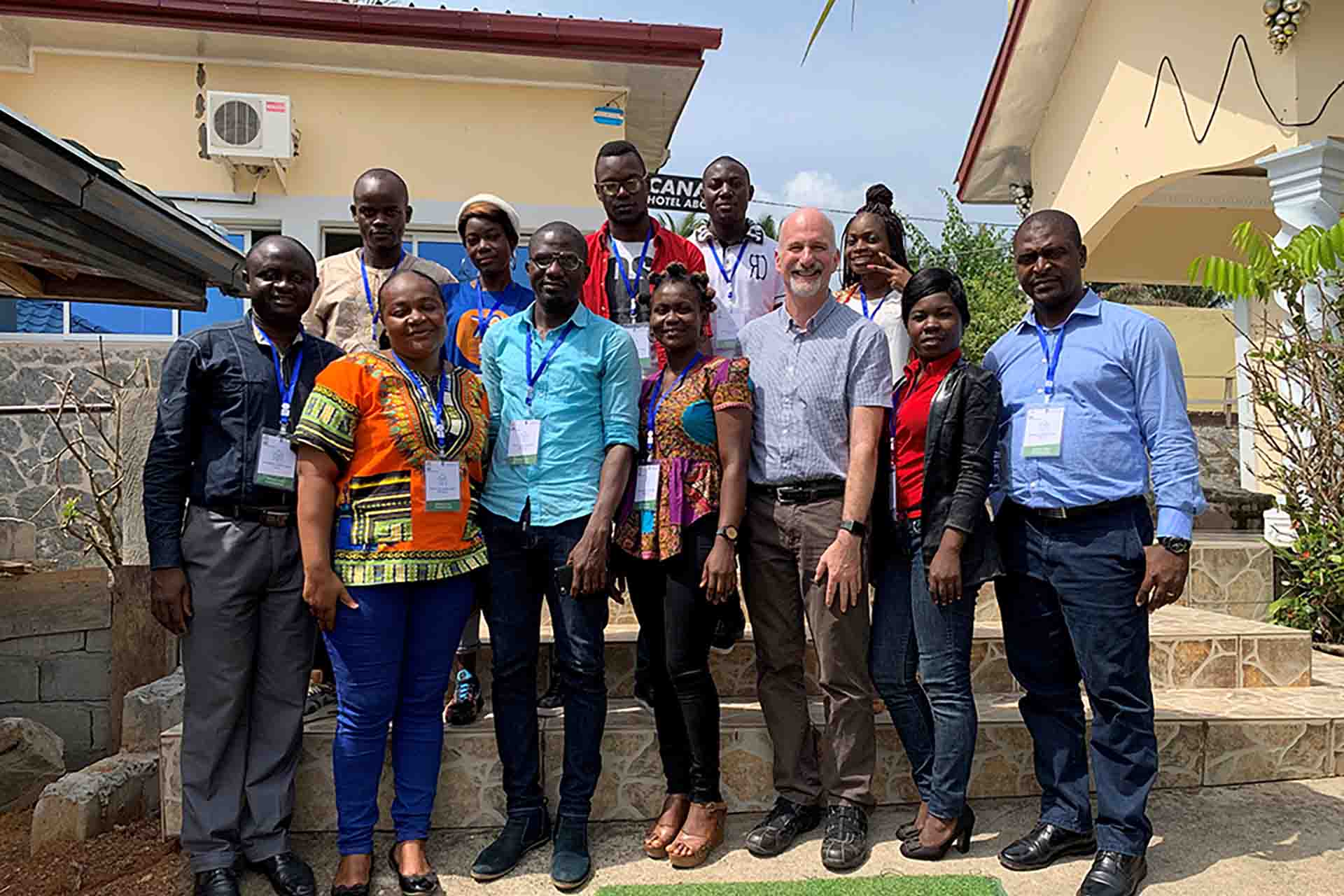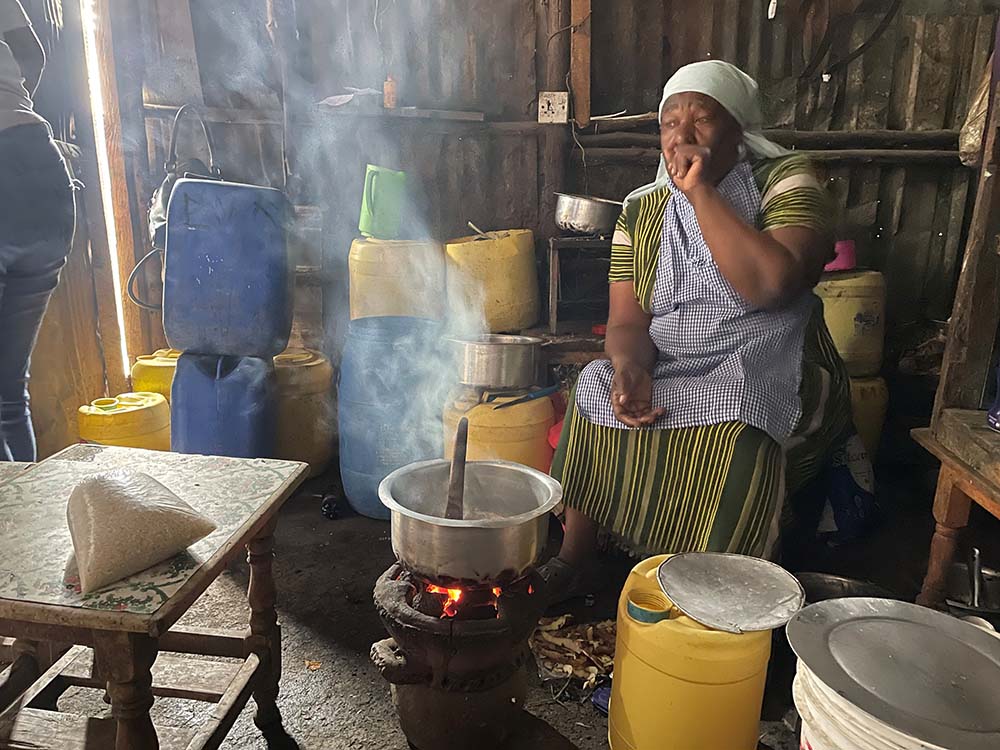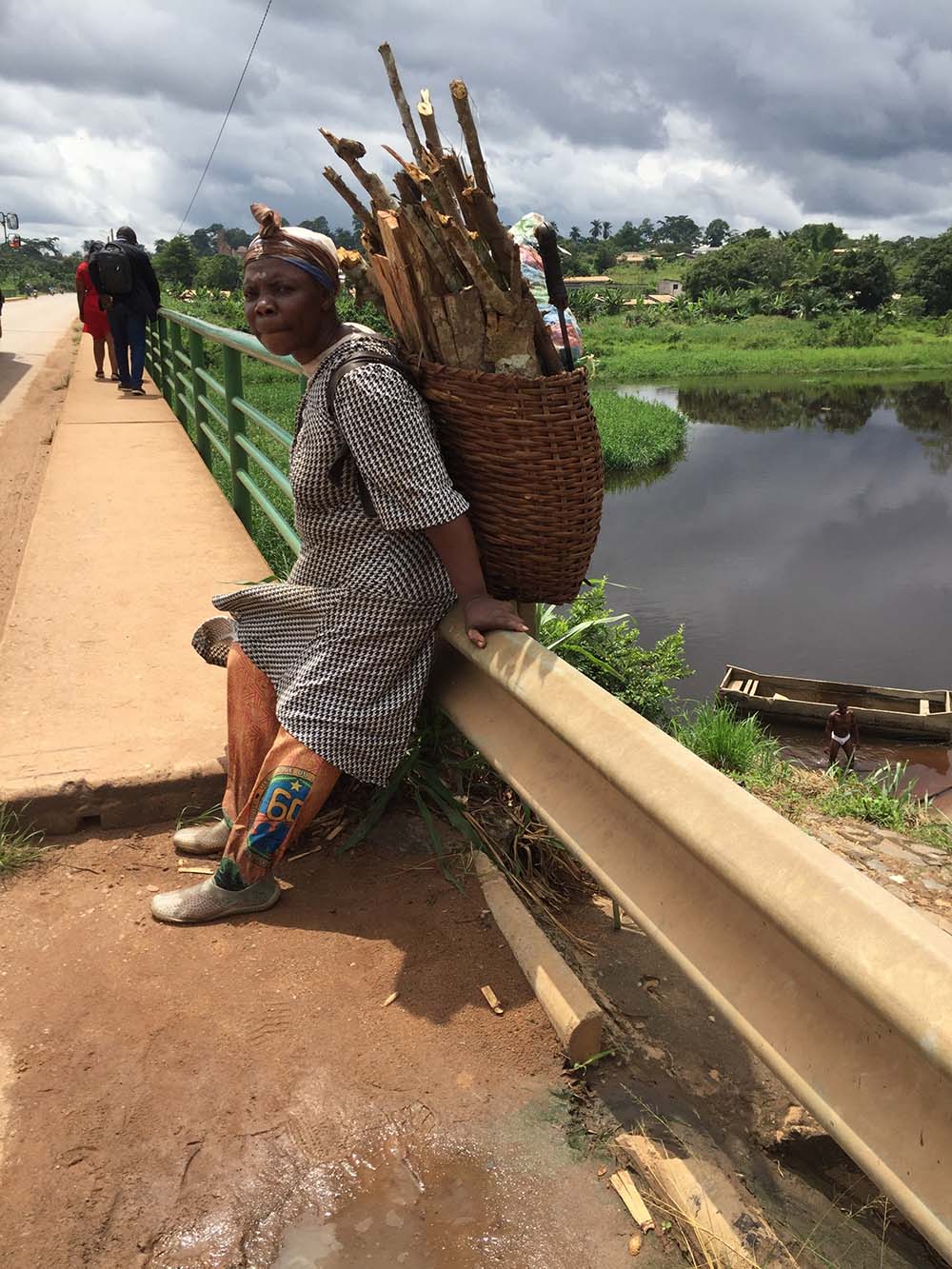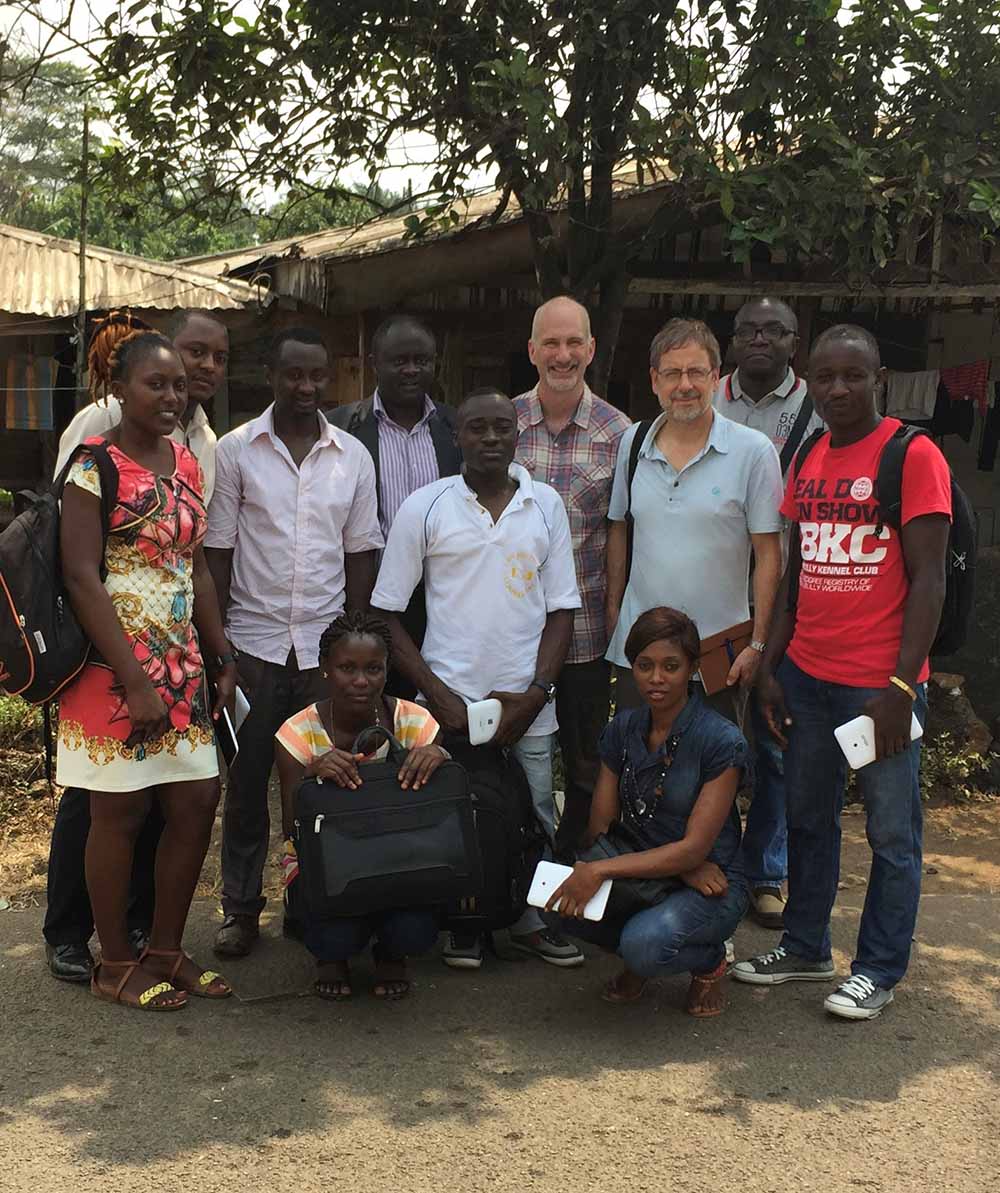
The renowned CLEAN-Air Africa project celebrated a significant milestone recently, as the Cameroon based implementation of the project marked a decade since it was established. Professor Daniel Pope, lead for the Energy, Air Pollution and Health Research Group within PHPS, chronicles the history, impact and future of the partnership:
When I look back over the past decade of our collaboration with colleagues in Cameroon, I am reminded just how far we’ve come - from an ambitious idea to turn research into policy action born out of Air Quality Guidelines, to a thriving research partnership making real impact on public health and policy across Africa.
This phase of our research began in 2014, when the previous Director of our Group, Professor Nigel Bruce, and I, together with our research fellow Dr Elisa Puzzolo, led the secretariat for the World Health Organization’s Air Quality Guidelines for Household Fuel Combustion. These guidelines highlighted strategies for addressing the significant disease burden from reliance on polluting household energy relied on by 3 billion people globally – namely transition to clean household technologies and fuels to reach target levels of air pollution to positively impact health. Our research had contributed to the quantification of the problem through global disease burden estimation with 3 million people dying each year from exposure to pollution from burning wood, charcoal, and kerosene for their energy needs. In sub-Saharan Africa the problem was greatest with household air pollution killing more than 742,000 people each year, including around 26,000 in Cameroon alone.

At that time, Dr Puzzolo was also working with the Global LPG Partnership, which was collaborating with the Cameroonian government on a national Liquefied Petroleum Gas (LPG) Masterplan. LPG was emerging as the most scalable clean energy option for African households, and we saw an opportunity to generate much-needed evidence to inform these bold new policies understanding barriers and enablers to adoption and quantifying health and climate impacts from clean fuel transitions.
Through partnerships with US colleagues, we secured funding from the CDC and later the NIH, which allowed us to establish formal collaborations with Professor Bertrand Mbatchou, then a respiratory physician at Douala General Hospital. Bertrand, who had trained with us through the Pan African Thoracic Society’s Epidemiology programme, quickly proved to be an exceptional partner. Together, we convened in Liverpool to design the LPG Adoption in Cameroon Evaluation (LACE) studies—the first large-scale research effort in Africa to explore how clean cooking transitions could transform public health.
Our Liverpool team (Sara Ronzi, James Higgerson, and Lirije Hyseni) worked hand in hand with a growing team at Douala General Hospital. Fieldwork was based in Southwest Cameroon, and from the outset we cultivated strong ties with key ministries: Health, Energy and Water Resources, and Women and the Family and our research communities. The results provided key evidence on the benefits of adopting clean household energy (including impacts on respiratory and cardiovascular disease) and potential enablers to support population adoption of clean energy. Our research was closely followed by the Cameroon Radio and Television Company (CRTV), equivalent to the BBC in the UK, and this helped raise population awareness on the health effects of household air pollution and benefits of clean cooking. We also hosted national clean cooking events with the ministries to coincide with National Rural Women’s Day in Cameroon. Our research therefore not only informed Cameroon’s national policies but also helped stimulate further transition to clean cooking in the country. These impacts in Cameroon helped lead to a 4-star REF2018 impact case study in the UK for PHPS.

From these foundations, we launched the NIHR CLEAN-Air (Africa) Global Health Research Unit in 2018, supported by £3 million for collaborative research across Cameroon, Kenya, and Ghana. We applied state-of-the-art air pollution monitoring (including development of Africa’s first Air Pollution Centre of Excellence in Kenya) alongside high quality mixed-methods research, while investing heavily in training and capacity building. In 2021, we extended our work to focus on women commercial cooks in Cameroon and African school kitchens, before expanding further in 2022 with a £7 million award to include Rwanda, Tanzania, and Uganda for a 5-year programme. Douala General Hospital has since become a Centre of Excellence for Air Quality Measurement affiliated with our Air Pollution Centre of Excellence in Kenya and providing a resource to Central and West Africa as a regional hub for CLEAN-Air (Africa).
Ten years on, we have built not only evidence but also enduring trust and capacity within Cameroon (from stakeholders to communities). Our partnership has grown into one of Africa’s most important platforms for public health and climate research on household and school clean energy transitions. Yet our work is far from complete. With 60% of Africa projected to miss the target of universal access to clean modern energy by 2030, the stakes remain high. In July, the IEA specified that to achieve Universal Access to Clean Cooking in Africa by 2040 for health and climate gains (10 years after the SDG time horizon), 60% of households will need to be using LPG and 17% electricity for cooking. Given currently only 1 in 10 households use LPG and 1 in 100 electricity for cooking in the continent significant investment, international engagement and a drive in regional policy is required. Our partnership will continue to provide the research evidence that is needed to inform and drive this strategy and investment with a focus on public health and gender equity.
As I reflect on this ten-year milestone, I feel immensely proud of what we have achieved together. But more importantly, I feel determined. The CLEAN-Air (Africa) partnership has already saved lives and shaped policy. With continued collaboration, we can help ensure a healthier, fairer, and cleaner future for communities across the continent.
